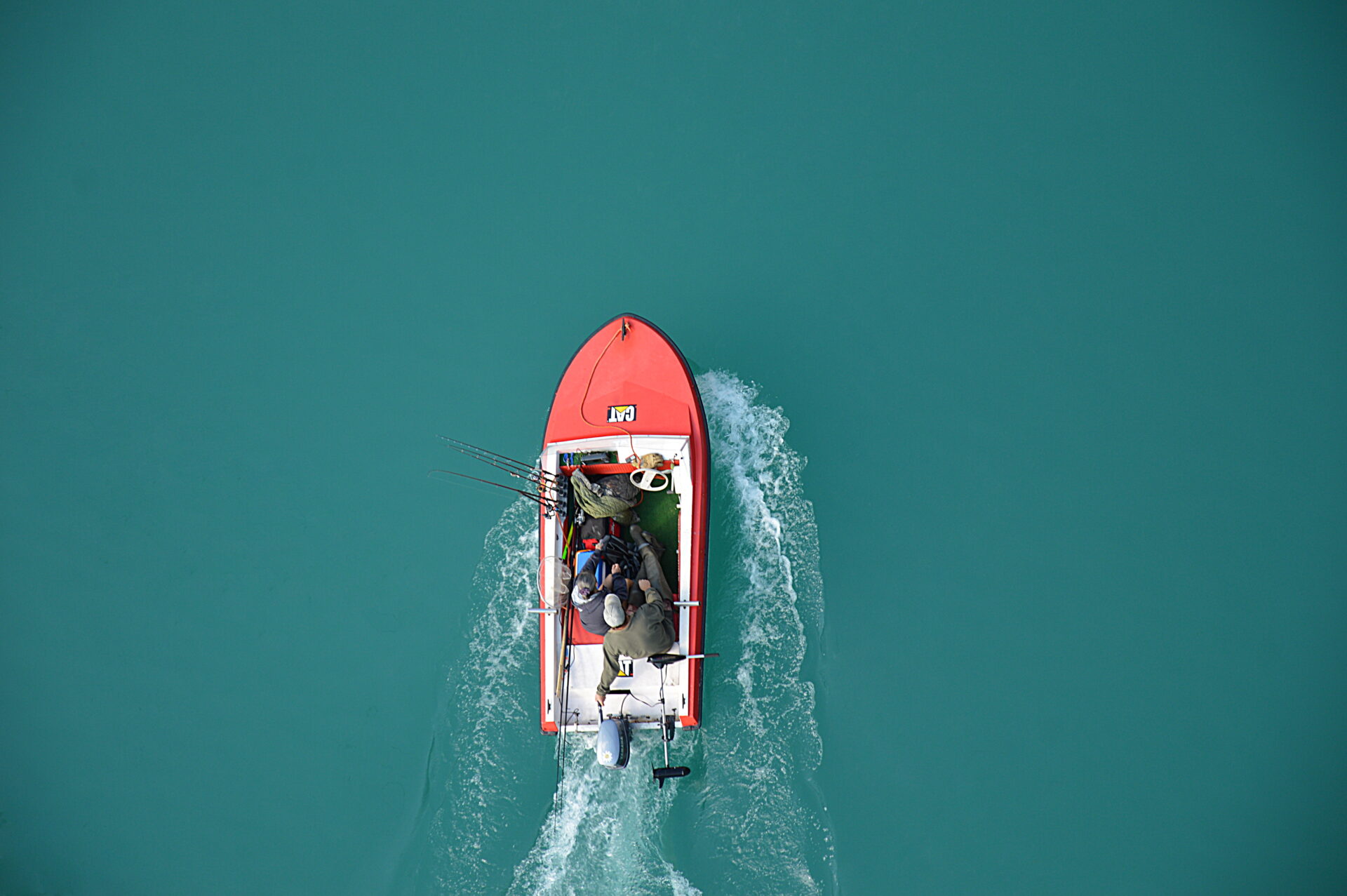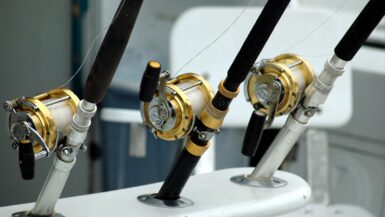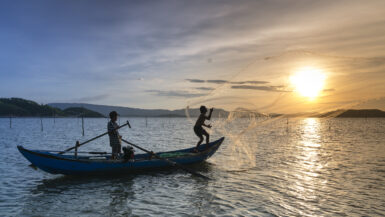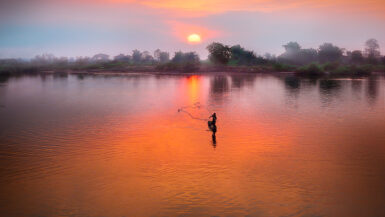Fishing has long been a beloved pastime for many, with freshwater fishing particularly popular due to the abundance of easily accessible freshwater sources. While recreational fishing is a fun way to spend some quality time outdoors, it is essential to ensure that we protect our freshwater ecosystems and fish populations by adhering to conservation-minded practices. This article will explore the importance of conservation in freshwater fishing, as well as strategies that fishermen can use to reduce their impact on the environment and help protect fish populations.
The Need for Freshwater Conservation
Freshwater fishing is a vital component of our ecosystem and its conservation is necessary to protect our fish populations. Without proper conservation measures, our freshwater fish populations are at risk of overfishing, habitat destruction, and non-native species invading their native habitats. To preserve our fisheries, it is essential to protect our freshwater resources and implement proper freshwater conservation initiatives.
Advantages of Freshwater Conservation
Conserving freshwater resources provides several different benefits. Not only is it crucial to protect our fish populations, but it can also protect other wildlife species, prevent water pollution, and help combat climate change. When freshwater ecosystems are healthy and intact, they act as carbon sinks, which means they absorb carbon dioxide from the atmosphere and reduce the effects of climate change. Furthermore, by preserving freshwater resources, it can help reduce soil erosion and ensure access to clean drinking water for people and wildlife.
How to Conserve Freshwater Fishing Resources
There are many ways to protect and conserve freshwater fishing resources. First, it is important to practice responsible and ethical fishing in order to maintain healthy fish populations. Fishermen should follow catch limits, use catch-and-release practices, and fish in areas that are stocked appropriately. Additionally, it is important to reduce water pollution by disposing of garbage properly and limiting the use of chemicals when fishing.
It is also important to protect and preserve habitats to ensure that fish populations remain healthy. This can be done by supporting efforts to restore and protect riparian areas, wetlands, and other habitats. Finally, it is essential to join forces with other organizations and stakeholders in order to raise awareness and find solutions to the threats facing freshwater ecosystems.
Conclusion
In conclusion, it is essential to take action and implement freshwater conservation initiatives in order to protect our fish populations and freshwater resources. Responsible fishing, reducing water pollution, and protecting habitats are all important measures that can help protect our fish populations and ensure future generations have access to clean and healthy water.
The Impact of Overfishing
Freshwater fishing has become a major global issue with the growing demand for seafood, leading to the overfishing of many species. Overfishing is the removal of too many fish from an ecosystem and has had a devastating impact on freshwater ecosystems and fish populations. It has led to the depletion of fish stocks, reduced yields and catch sizes, and impacts other species in the environment.
Threats to Fish Populations
Overfishing has led to a decrease in the number of fish available to be caught, negatively impacting numerous species. This has resulted in fewer fish in the ecosystem, making it harder for predators to find food. Additionally, the depletion of fish stocks has caused a decrease in ecosystem diversity as the natural balance of the environment is disrupted.
Damaging Effects on the Ecosystem
The removal of too many fish has led to a decrease in biodiversity and has caused serious damage to the environment. Overfishing has reduced the populations of some species to the point where they cannot reproduce, leading to their extinction. The loss of species can have a negative impact on the health of the ecosystem, as some species are essential for maintaining the natural balance of the environment.
Sustainable Fishing Practices
To protect freshwater ecosystems and fish populations, sustainable fishing practices must be implemented. This involves setting catch limits and sizes, as well as protecting spawning areas and limiting the use of certain types of fishing gear. It is important for local communities, governments, and commercial fishers to work together to ensure that fishing is done responsibly and sustainably.
Efforts to Protect Fish Populations
Various organizations are working to protect fish populations and promote sustainable fishing practices. Campaigns like “Think Before You Fish” aim to educate the public on the importance of responsible fishing and the need to conserve freshwater ecosystems and fish populations. Additionally, organizations like the World Wildlife Fund are advocating for global efforts to protect fish populations and promote sustainable fishing practices.
The Need to Conserve Our Waters
As freshwater fishing continues to be a major global issue, conservation efforts are essential for protecting fish populations and promoting sustainable fishing practices. Overfishing has had a devastating impact on the environment, leading to the depletion of fish stocks and disruption of the natural balance of the ecosystem. It is essential for local communities, governments, and commercial fishers to work together to ensure that freshwater fishing is done responsibly and sustainably. Conservation efforts and initiatives from organizations have proven to be effective in protecting fish populations and promoting sustainable fishing practices.
The Benefits of Freshwater Conservation
Freshwater conservation is essential for the health of our planet and its species.Water is an essential resource for life on Earth and many of our ecosystems rely on freshwater to sustain themselves. Conserving freshwater is not only important for the environment, but also for human beings as it provides a range of benefits including food, drinking water, flood control, and recreation.
Reducing Pollution
Efforts to conserve freshwater can also help reduce pollution levels in water systems. Reducing our water consumption can reduce the amount of pollutants such as fertilizers, pesticides, and other industrial chemicals that are washed into our water systems. This leads to a safer and healthier environment for both people and wildlife.
Preserving Ecosystems
Conserving freshwater can also help to maintain the health of our ecosystems. Freshwater ecosystems are home to many species that are essential to the health of our planet. By preserving these ecosystems, we ensure that these species continue to thrive and provide the benefits they offer.
Reducing Waste
Conserving freshwater can also help reduce the amount of waste that is produced. By reducing our water consumption, we reduce the amount of water needed to be treated and processed by our water systems. This can reduce carbon emissions, energy use, and water pollution.
Improving Water Quality
When we conserve freshwater, we are helping to improve water quality. When we reduce our water consumption, we reduce the amount of pollutants entering our water systems. This reduces the amount of sediment and other contaminants that can affect the health of our fish and other aquatic organisms.
Maintaining a Balanced Supply
By conserving freshwater, we can ensure that our water systems maintain a balanced supply. This can reduce seasonal fluctuations in water levels and prevent droughts. In addition, we can help prevent the over-exploitation of our water resources, which can lead to long-term problems with water scarcity and water security.
Preserving Fish Populations
Freshwater conservation can also help preserve fish populations. By reducing our water consumption, we reduce the amount of pollutants that can harm our fish populations and their habitats. This helps to ensure that our fishing communities and our recreational and commercial fisheries remain healthy and sustainable.
Sustaining a Healthy Economy
Freshwater conservation can also help to sustain a healthy economy. Conserving water can reduce utility bills and improve the efficiency of water-related businesses. This can lead to more jobs and investments, boosting local economies and improving the livelihoods of people who depend on water for their livelihoods.
Best Practices for Caring for Freshwater Fish Populations
Conservation of freshwater fish populations is essential for the health of our waterways and the overall future of the planet. Fishing is an important food source for many people around the world, and it is essential to be mindful of our practices to protect and sustain this precious resource. In this article, we will discuss the best practices for preserving freshwater fish populations and protecting our aquatic life.
Restrictions on Fishing Times and Processes
Limiting fishing times and processes is one of the most effective ways to protect freshwater fish populations. Fishing should be limited to certain times of the day, as well as certain areas and depths. Restrictions should be placed on the methods and bait used, with particular attention paid to using artificial lures and barbless hooks. This will reduce the impact on the fish population and the environment.
Harvesting and Fishing Education
Educating fishers on the importance of sustainable harvesting and fishing practices is also essential for the conservation of freshwater fish populations. Fishers should be taught how to properly identify, handle, and release fish, as well as the proper release of unwanted catches. Fishing regulations should be strictly enforced and any violations should have consequences.
Conservation of Natural Resources
Protection of natural resources is key to the conservation of freshwater fish populations. The habitats of the fish should be protected from disturbance or destruction, and pollutants should be prevented from entering the water. Natural habitats should be maintained and restored, as these provide a safe and healthy environment for the fish.
Restore Fisheries and Wildlife Habitats
Restoring and protecting fisheries and wildlife habitats is also an essential part of the conservation of freshwater fish populations. Natural habitats should be improved to ensure the survival of fish, and artificial habitats should be created where needed. Along with this, stocking programs should be implemented in a sustainable manner to ensure the long-term survival of the species.
Careful Monitoring and Research
Monitoring and researching freshwater fish populations is important in order to establish baseline populations and understand the ecology of the species. This data can then be used to inform management plans and set sustainable harvest limits, in addition to providing essential data to help protect the fish populations.
By taking the appropriate steps to protect and conserve freshwater fish populations, we can ensure their long-term survival and the overall health of our waterways. With thoughtful management, harvesting, and conservation practices, we can protect this valuable resource for generations to come.
Ways Everyone Can Help with Freshwater Conservation
The first step in helping protect our freshwater resources is to educate yourself on how freshwater fishing conservation works and how to best protect our fish populations and waters. Take the time to read up on the different practices that can help sustain and protect the environment, such as catch and release guidelines, proper bait selection, avoiding overfishing, and the proper disposal of unused bait and tackle. Once you understand the basics, you can be better in tune with the environment and work in your own way to help with freshwater conservation.
Adhere to Catch and Release Guidelines
One important way you can help with freshwater conservation is to practice catch and release guidelines. This includes handling the fish as little as possible, using a wet cloth or net to help reduce contact with the fish, and using barbless hooks to make sure the fish can be easily and safely released. This will help to ensure the fish can survive and thrive in the waters, and can help preserve the local fish populations.
Support Local Conservation Efforts
Another way everyone can help with freshwater conservation is to support local conservation efforts such as river or stream cleanups and stocking programs. Many local organizations and even state wildlife resources agencies offer opportunities to get involved with conservation projects. Additionally, researching and supporting freshwater conservation organizations is a great way to do your part in protecting our waters.
Use the Proper Fishing Gear and Bait
When it comes to fishing, using the right gear and bait is key to helping with freshwater conservation. This includes selecting the right size and type of bait for the type of fish you’re targeting, as well as selecting lures and tackle that are designed to be eco-friendly. Taking the time to research and select the proper gear and bait can make a huge difference in helping protect our waters and fish populations.
Avoid Overfishing
Overfishing is a major contributor to declining fish populations and can have a devastating effect on the environment. Avoiding overfishing is key in helping with freshwater conservation. This includes following fishing regulations for the areas you are fishing in, only keeping the fish you need, and returning anything that is too small or not within regulations.
Dispose of Unused Bait and Tackle Properly
Using the proper disposal methods for unwanted bait or tackle is an important part of freshwater conservation. Make sure to research and follow the recommended guidelines for the area you are in to properly dispose of any unused bait or tackle. This will ensure that these materials do not contaminate the local water sources or end up harming any local fish or wildlife.
The Benefits of Freshwater Fishing Conservation
Freshwater fishing conservation is a critical part of ensuring healthy and sustainable fish populations. By following conservation guidelines, recreational anglers can reduce the impact of fishing on fish populations and the environment. Additionally, anglers can practice catch-and-release methods, use barbless hooks, and release small or young fish — all of which are beneficial to preserving the diversity and abundance of fish in our waters. Moreover, using artificial lures and line backups instead of live bait can minimize the mortality of non-target species. Finally, by following local fishing regulations and using proper catch-and-release methods, anglers can help ensure that fish populations remain healthy and sustainable for years to come.





Leave a reply